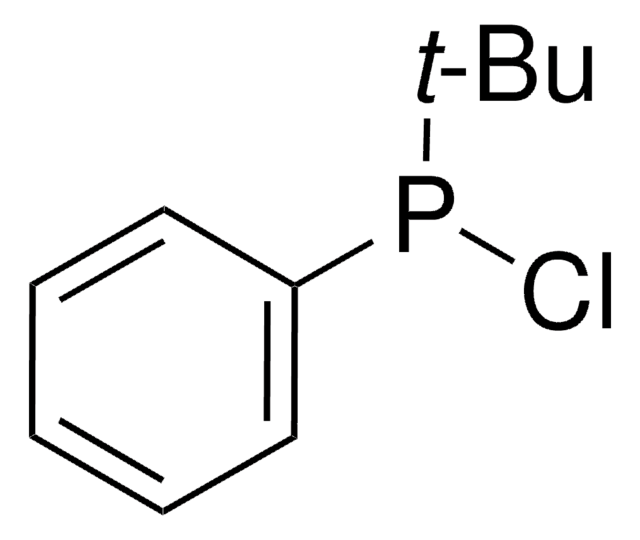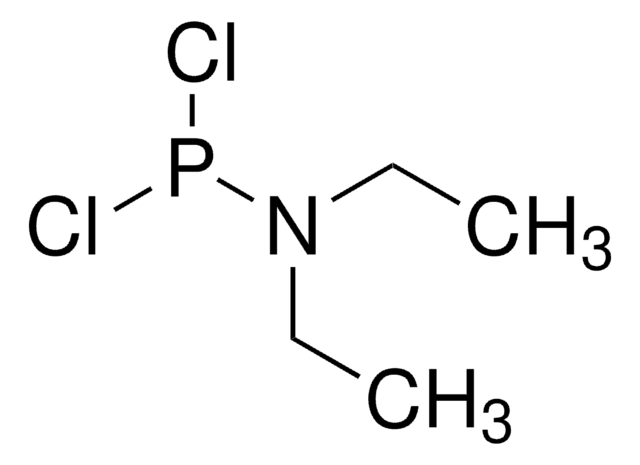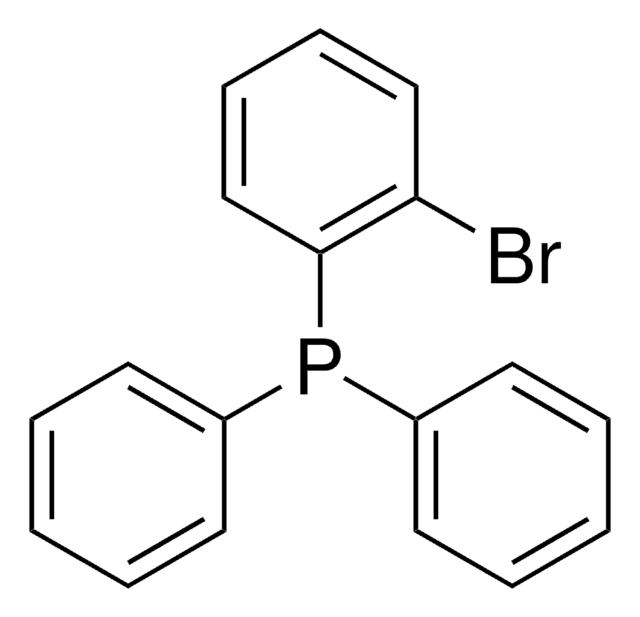D71984
P,P-Dichlorophenylphosphine
97%
Sinónimos:
Phenyldichlorophosphine, Phenylphosphine dichloride, PhPCl2, Phenylphosphonous dichloride
About This Item
Productos recomendados
Nivel de calidad
Análisis
97%
formulario
liquid
idoneidad de la reacción
reaction type: Buchwald-Hartwig Cross Coupling Reaction
reaction type: Heck Reaction
reaction type: Hiyama Coupling
reaction type: Negishi Coupling
reaction type: Sonogashira Coupling
reaction type: Stille Coupling
reaction type: Suzuki-Miyaura Coupling
reagent type: ligand
índice de refracción
n20/D 1.597 (lit.)
bp
222 °C/759 mmHg (lit.)
mp
−51 °C (lit.)
densidad
1.319 g/mL at 25 °C (lit.)
grupo funcional
phosphine
cadena SMILES
ClP(Cl)c1ccccc1
InChI
1S/C6H5Cl2P/c7-9(8)6-4-2-1-3-5-6/h1-5H
Clave InChI
IMDXZWRLUZPMDH-UHFFFAOYSA-N
¿Está buscando productos similares? Visita Guía de comparación de productos
Descripción general
Aplicación
Palabra de señalización
Danger
Frases de peligro
Consejos de prudencia
Clasificaciones de peligro
Acute Tox. 3 Oral - Skin Corr. 1B - STOT SE 3
Órganos de actuación
Respiratory system
Riesgos supl.
Código de clase de almacenamiento
6.1C - Combustible acute toxic Cat.3 / toxic compounds or compounds which causing chronic effects
Clase de riesgo para el agua (WGK)
WGK 3
Punto de inflamabilidad (°F)
235.4 °F - closed cup
Punto de inflamabilidad (°C)
113 °C - closed cup
Equipo de protección personal
Faceshields, Gloves, Goggles, type ABEK (EN14387) respirator filter
Certificados de análisis (COA)
Busque Certificados de análisis (COA) introduciendo el número de lote del producto. Los números de lote se encuentran en la etiqueta del producto después de las palabras «Lot» o «Batch»
¿Ya tiene este producto?
Encuentre la documentación para los productos que ha comprado recientemente en la Biblioteca de documentos.
Los clientes también vieron
Nuestro equipo de científicos tiene experiencia en todas las áreas de investigación: Ciencias de la vida, Ciencia de los materiales, Síntesis química, Cromatografía, Analítica y muchas otras.
Póngase en contacto con el Servicio técnico











